How Prince William plans to modernise the monarchy
Like his late grandfather Prince Philip, Prince William is dedicated to royal service. But he’s determined to do things a little differently.
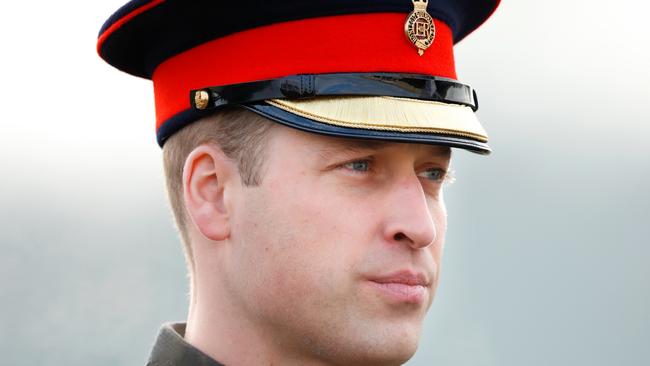
Later this month Prince William will celebrate his 10th wedding anniversary – the day he became a duke and embarked on the most formative decade of his life. Back then, the tentative 28-year-old newlywed was not ready to devote himself entirely to royal duties. A decade on, he is in a very different position.
The job of being the heir to the heir to the throne, of finding a balance between life and duty, is difficult at the best of times. These are not the best of times. In their bombshell interview with Oprah Winfrey last month the Duke and Duchess of Sussex, Harry and Meghan, accused the royal family and the institution around it of racism and callous disregard for a suicidal newcomer, among many other damning charges. Harry the spare also declared William was trapped within “the system… My brother can’t leave that system, but I have”.
In the immediate aftermath of the interview William was “reeling”, a source close to the duke says. “His head is all over the place on it.” Four days after the Sussexes had their say, he hit back during an engagement with his wife Catherine, the Duchess of Cambridge, at a school in east London. Asked about accusations of racism, William retorted with restrained fury: “We’re very much not a racist family.” He also confirmed that he hadn’t spoken to Harry yet, “but will do”. Days later it emerged they had “been in contact”.
William is thought to have been less than thrilled a few days later when that conversation made global headlines after the US TV presenter Gayle King, a close friend of the Sussexes, revealed live on air that it had not been an easy chat: “I did actually call them to see how they were feeling,” she told viewers. “Harry has talked to his brother and he had talked to his father too. The word I was given was that those conversations were not productive.” The intervention prompted a senior royal source to say that “none of the households will be giving a running commentary on private conversations”. A close friend of both brothers says Harry’s “trapped” comment was “way off the mark”, insisting that William does not see it that way. “He has a path set for him and he’s completely accepting of his role. He is very much his grandmother’s grandson in that respect of duty and service.”
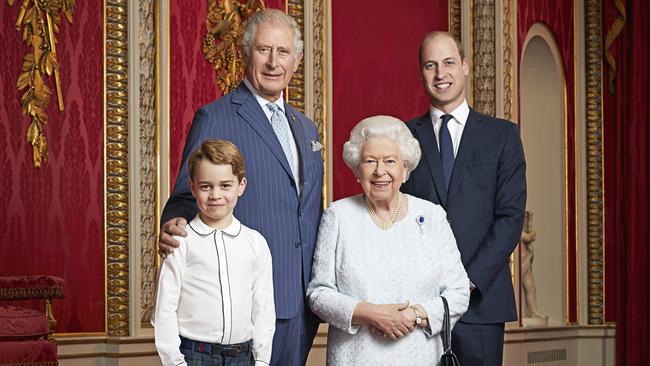
When the Queen turned 90nearly five years ago, William admitted “the challenge” that “occupies a lot of thinking space” is how to “modernise and develop” the royal family and make it “relevant in the next 20 years’ time”. Twenty years now seems like a very long time. In the hours and days after the Oprah broadcast, William was at the heart of all discussions with the Queen and the Prince of Wales about how to respond to the Sussexes. He was keen that the issue of race should be acknowledged by the Queen as an area of particular concern that “will be addressed”.
William has always railed against being a “ribbon-cutter royal” and the issues he champions – mental health, battling racism in football, homelessness and his ramped-up eco-warrior role – are a window into where the future King William V will take the House of Windsor. A friend says: “He’s a small-c conservative. He values tradition and the need to go around the country, but he realises he can make a difference beyond traditional royal duties.”
Today royal popularity is, to put it mildly, in a state of flux, but William’s strategy has been working. Post-Oprah, he ranks just below the Queen at the top of a YouGov poll of royals. Not so long ago such a position looked like a long shot, when the “work-shy Wills” and “reluctant royal” tags plagued him and he was clocking up fewer days of royal work than his nonagenarian grandparents. Pictures of him hitting the ski slopes and clubs of Swiss resort Verbier in March 2017, missing a Commonwealth service that even the Duke of York flew back for, didn’t help.
After the PR gold dust of the Cambridges’ 2011 wedding and the births of Prince George and Princess Charlotte, it was the first public nosedive for William, who was still working as an air ambulance pilot. “That pissed him off,” a friend says. “He was leaving home at 5.30am, getting home after dark and saving lives in between, but people were still being critical of his commitment to his [other] job.” William was based at Cambridge airport with East Anglian Air Ambulance for two years, where he was on call for “some very sad, dark moments”, often working “on very traumatic jobs involving children”. He later acknowledged that “after I had my own children … the relation between the job and the personal life was what really took me over the edge, and I started feeling things that I have never felt before”. But it was a job he loved, because of “working in a team … that’s something that my other job doesn’t necessarily do”.
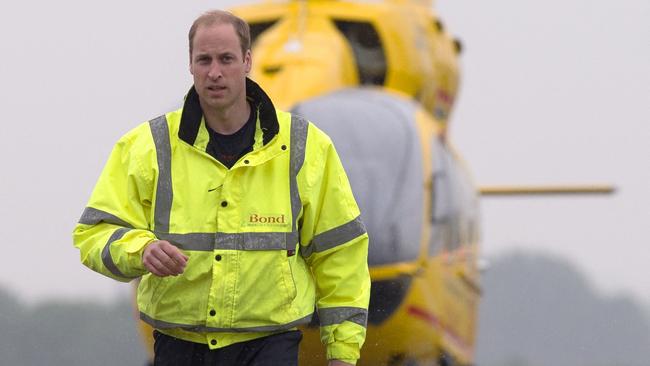
A former royal aide says: “Immediately after their wedding he had a very clear idea of the pace at which he wanted to take things.” William was adamant he wouldn’t curtail his day jobs, first as an RAF search and rescue helicopter pilot in Anglesey and then with the air ambulance. “If you’re not careful, duty can weigh you down an awful lot at an early age,” he said, insisting he didn’t “lie awake waiting or hoping” to be king. He delayed full-time royal duties until the autumn of 2017, when, acknowledging the Cambridges’ future required more time at “monarchy HQ”, they moved from Norfolk to London and George started school.
He’d had to fight his corner for the air ambulance role. A source close to William reveals “there were lots of raised eyebrows in the Palace when he wanted to do that. While the Queen and his father backed him, some senior courtiers questioned whether it was becoming of a future king to be doing a middle-class role, hanging out with ordinary people. They thought he wouldn’t stick it out, he’d find it boring, or was doing it out of stubbornness to put off royal duties. He was pretty bloody-minded about it, and determined that other people’s expectations in the media or the system shouldn’t get in the way of his own values.”
In the wake of Harry and Meghan’s interview much has been speculated about the extent to which royal life is dictated by Palace officials, but it is clear that William has managed to forge his own path. Who knows how high those senior courtiers’ eyebrows rose in 2019, when William spent three weeks shadowing the spooks of MI5, MI6 and GCHQ to learn how they combat terrorism. He insisted on being called “Will” and lunching in the canteen every day.
Those closest to the duke say his resistance to the idea of full-time royal duties stemmed not only from a desire to achieve something for himself but also from a fear of the impact on his family life. Miguel Head worked alongside the prince for 10 years until 2018, as William, Kate and Harry’s communications secretary and later as William’s private secretary. “In his role everyone’s going to tell you you’re marvellous,” Head says. “The RAF and air ambulance jobs were about knowing what his abilities were, what he was good at in his own right. Without that he’d still be hankering for something that was his own.” After children came along, William developed a “visceral determination to give them a life of consistency and privacy that were missing for large parts of his own childhood”.
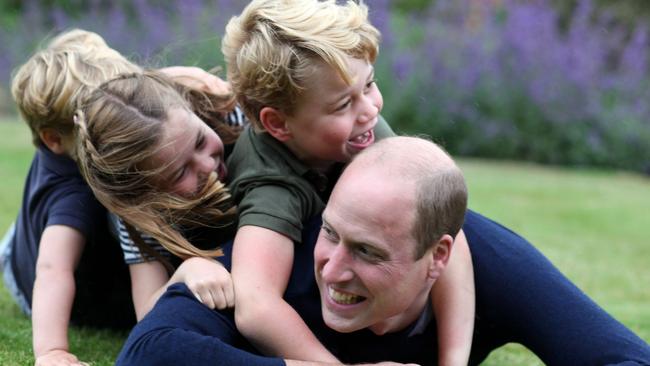
Another close aide says the plan enabling the Cambridges to have a few years of “normal” married life, away from the full-time glare of the royal spotlight, paid dividends: “For years, the battles around privacy and paparazzi intrusion were all-consuming. He wanted to know, could we build them a credible plan allowing them a family life while slowly increasing the profile of official life? It took years to get there, but the success of that plan allowed him to be confident and content in his role. He’s not worried about his kids’ privacy anymore and he has been able to be the kind of dad he wants to be.”
“Catherine’s groundedness has been the critical anchor,” a friend says. “And where his relationship with the media was once all fury and frustration, he now understands using the power of modern media, so the public feel they’re getting enough access.” The children’s birthdays are marked with photographs (often taken by the Duchess of Cambridge) and there has been a noticeable increase in their public appearances of late. As they celebrate their anniversary on April 29, friends who joined the Cambridges on their wedding day tell me the partnership’s equal footing is key to its success. “They’ve got a solid relationship and she gives him confidence,” one says. “There is no jealousy, no friction, they are happy for each other’s successes.” In private William talks as passionately about Kate’s work as his own campaigns, and takes pride in her growing confidence in public.
William has said his grandmother’s approach to being head of state is to take “more of a passive role. She’s above politics and is very much away from it.” He doesn’t plan to meddle in party politics but he was not happy about the unenviable position the government put the Queen in with the 2019 proroguing of parliament, which was later ruled to be unlawful and forced an apology from Boris Johnson to the monarch. Constitutionally the Queen had no alternative other than to act on the advice of her government, but in William’s reign there will be “more private, robust challenging of advice”. His last three private secretaries had all worked in government departments, helping William to keep his finger on the political pulse. The new incumbent, Whitehall heavyweight Jean-Christophe Gray, who served as former PM David Cameron’s spokesman, continues in that vein.
Charlie Mayhew, chief executive of the conservation charity Tusk, has known William since he was 20. In 2005 Tusk and Centrepoint, the homelessness charity championed by Princess Diana, were the first patronages William took on. “In those early years I kept having to pinch myself to remember how young he was,” Mayhew says. “He was much more mature than his age and very aware of his destiny coming down the track. He had a sincerity, but never without wicked humour.”
William knows some people see his passion for conservation as a posh man’s part-time hobby, but Mayhew says the duke’s “genuine and huge knowledge” undermines that view. “He’ll call and WhatsApp to flag up something that I haven’t even seen in the conservation space. He can be impatient to get things done.” Last year William launched the Earthshot prize, a £50 million Nobel-style environmental award to galvanise solutions to global problems over the next decade. He believes “conservation and the environment… shouldn’t be a luxury, it’s a necessity”, Mayhew says. “That’s the drum he wants to beat. He’s got a megaphone and wants to use it in the most constructive way. He speaks for that next generation and I think they can relate to it.”
A turning point for William was his 2015 official visit to China, one of the world’s largest consumers of ivory, where he met President Xi and condemned the illegal wildlife trade as a “vicious form of criminality”. Unlike his father, who has refused to visit the People’s Republic over its human rights record and treatment of Tibet, William’s view was that despite the UK’s fractious relationship with China, “we’ve got to engage”. “It was very political, raising the illegal wildlife trade in China. I’m sure the diplomats were having all sort of nightmares in advance,” says Mayhew, who joined the duke in China. “But he was gathering greater confidence that he had the ability to be a mouthpiece for the issue.” Later that year, as Xi began a UK state visit, William appeared on Chinese television condemning the ivory trade. Two years later, China banned the trade.
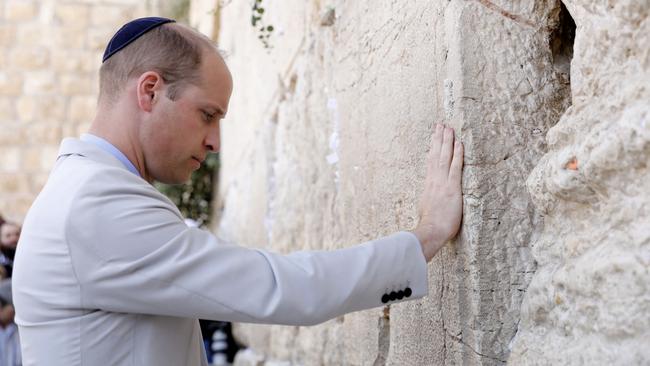
In 2018 he spent months prepping for his most high-stakes overseas visit yet, to Israel and the occupied Palestinian territories. Navigating the diplomatic tightrope walk between Jerusalem and the West Bank, he visited a Palestinian refugee camp in Ramallah. As he travelled back to Jerusalem, he changed his speech for a reception with young Israelis and Palestinians to strengthen his solidarity with the latter: “My message tonight is that you have not been forgotten … The United Kingdom stands with you.” It was a bold move, but both sides hailed his visit a success.
According to a source close to the brothers, William’s bridge-building skills were deployed in the lead-up to Harry and Meghan’s wedding in 2018, when tensions in the Kensington Palace household were running high: “Every time there was a drama, or a member of staff on the verge of quitting, William would personally try and sort it out.” As the brothers clashed more over the substance and style of their work, and the family hierarchy, a split was inevitable. When they finally divided their households in March 2019, it had been a long time coming. But William never thought that a year later his brother would up sticks for America.
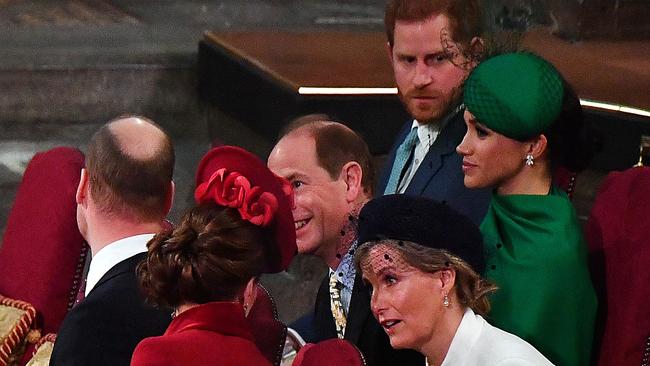
It is a year since the Sussexes left for California and William misses Harry. “Once he got over the anger of how things happened, he was left with the absence of his brother,” an aide says. “They shared everything about their lives, an office, a foundation, meetings together most days and there was a lot of fun along the way. He’ll miss it forever.” A close friend says William “definitely feels the pressure now it’s all on him – his future looks different because of his brother’s choices, it’s not easy.” Another friend says: “It’s still raw. He’s very upset by what’s happened, though absolutely intent that he and Harry’s relationship will heal in time.”
The first test will come later this year, when the brothers could be reunited for a series of family engagements including the Duke of Edinburgh’s 100th birthday and the Queen’s birthday parade in June. In July they are scheduled to unveil a statue of their mother at Kensington Palace, marking what would have been Diana’s 60th birthday.
While a chasm has opened up between the brothers, William has grown closer to the Queen and Prince Charles. He has helped them to navigate their way through Megxit, Prince Andrew’s removal from public life following the Jeffrey Epstein scandal and, now, the Oprah controversy. “That has changed the way the Queen sees him and values his input,” a courtier says. William also feels his relationship with his grandmother has “massively improved” in recent years and their views are “more aligned than ever”.
Friends say there has also been a “renaissance” in William and Charles’s relationship. “As the years passed there were strains imposed by the system – money, work, competition, Diana,” one says. “Part of William’s evolution is that as he has become closer to his father, he sees their similarities. At William’s wedding there was a gag in one of the speeches that he was more like his father than he’d ever admit, which made a lot of us laugh. As their respective destinies get closer, it weighs more heavily on them and strengthens the bond. The rift with Harry has also brought them closer.”
William is said to hate “flummery”, though the role of future king comes with plenty of bowing and scraping. But in 2017, for the first time publicly, he didn’t get his way. As a new parent worried about rising teenage suicide rates, he had spent a year convening a Cyberbullying Taskforce with big cheeses from tech and social media giants including Facebook, Snapchat, Apple, Google and Twitter. He wanted them to adopt industry-wide guidelines creating safer online spaces for children. According to William the meetings at Kensington Palace got “fruity” and the tech giants didn’t come close to the change he wanted. He was furious.
Tessy Ojo, chief executive of the Diana Award youth charity, sat on the taskforce. “He was deeply disappointed,” she says. “He didn’t come into it as ‘the duke’, he gave emotional pleas as a father.” William has since publicly condemned social media giants for their “false choice of profits over values” and privately offered support to the family of Molly Russell, who took her life at 14 after viewing images of self-harm online.
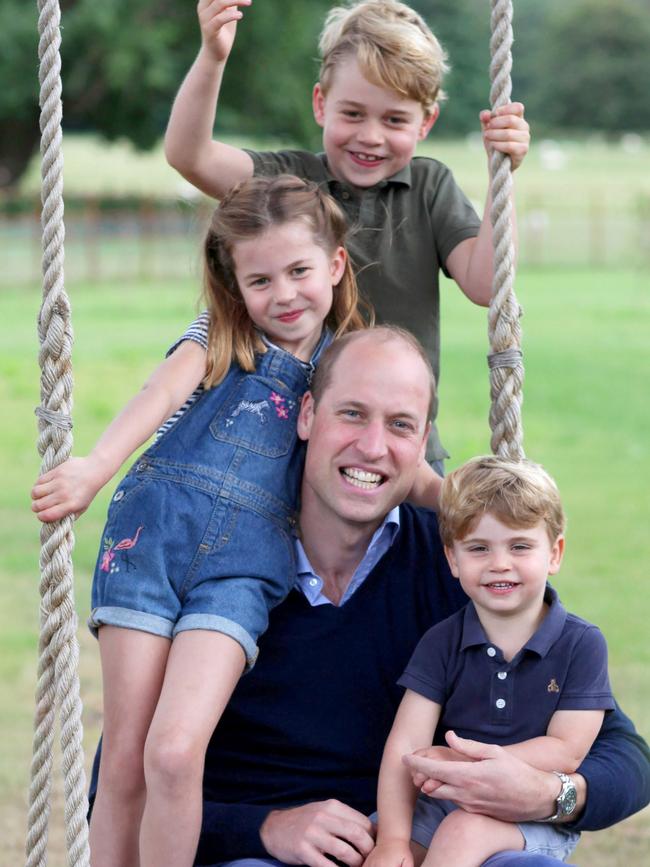
William is determined that the grandchildren Diana never knew should “know who she was and that she existed”. He “constantly” talks to his children “about Granny Diana” so that they know “there are two grandmothers in their lives”. Last month, on Mother’s Day, Kensington Palace’s social media feeds published George, Charlotte and Louis’s cards paying tribute to “Granny Diana”, revealing it is an annual ritual for the children. After a difficult few weeks for William, a line in Charlotte’s card provided poignant insight into how he is feeling: “Papa is missing you.”
He is on course to be a more modern monarch than any before him, but William is still a creature of habit. He has the same tight circle of friends from his schooldays, one of whom says that, with William, “it’s all about trust and loyalty”. “He never wants to be painted as irrelevant or dull, though he’s allergic to being compared to celebrities,’’ a friend says. “The public doesn’t always get to see his funny side, but otherwise he’s the same in private as in public. He once said, ‘I’ll be in the public eye all my life. I can’t hide who I am because I’ll be found out.’”
William “thinks the public look to him to keep royal work looking modern”, a confidante says. “The Queen and Prince of Wales are providing continuity and stability. He’s carving out his own relationship with diverse communities. He sees it all as a way of doing things now that will help a smooth transition when the time comes.”
Miguel Head says the future King William will continue to campaign on his big issues: “I can’t see him backing away from causes he’s passionate about. And while he’s not someone who loves ceremony, he knows the importance of it. When he gets the top job he won’t do away with it all. He’s mindful the monarchy represents something timeless that’s above all of us, and many people like the magic and theatre of it.”


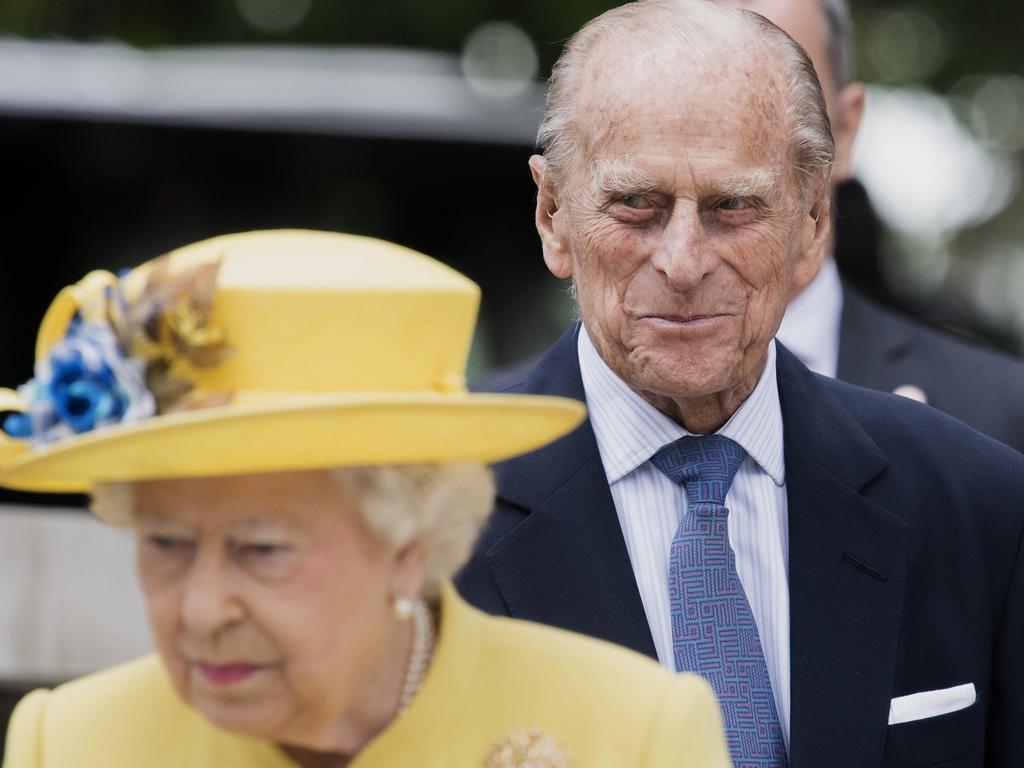
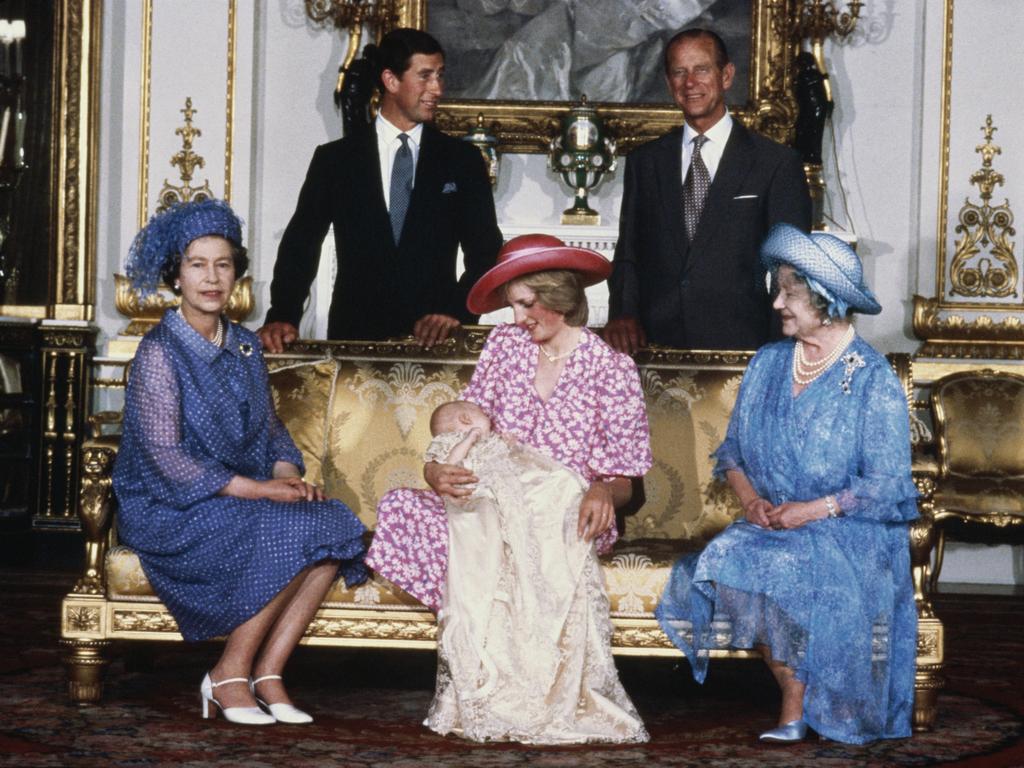
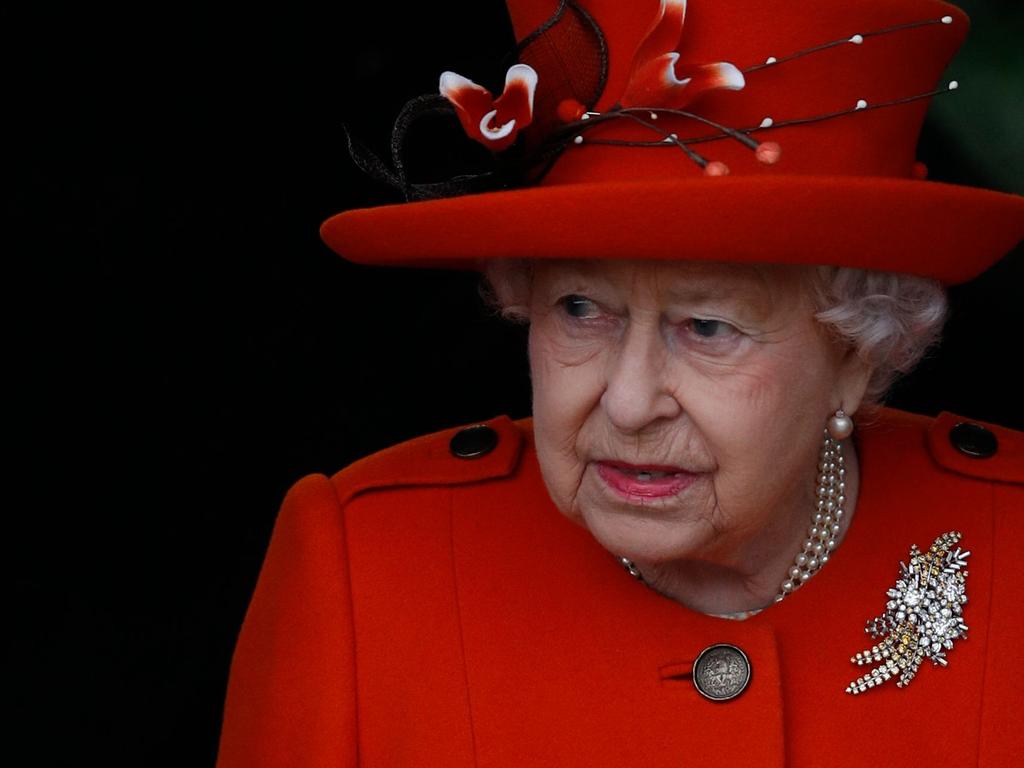
To join the conversation, please log in. Don't have an account? Register
Join the conversation, you are commenting as Logout